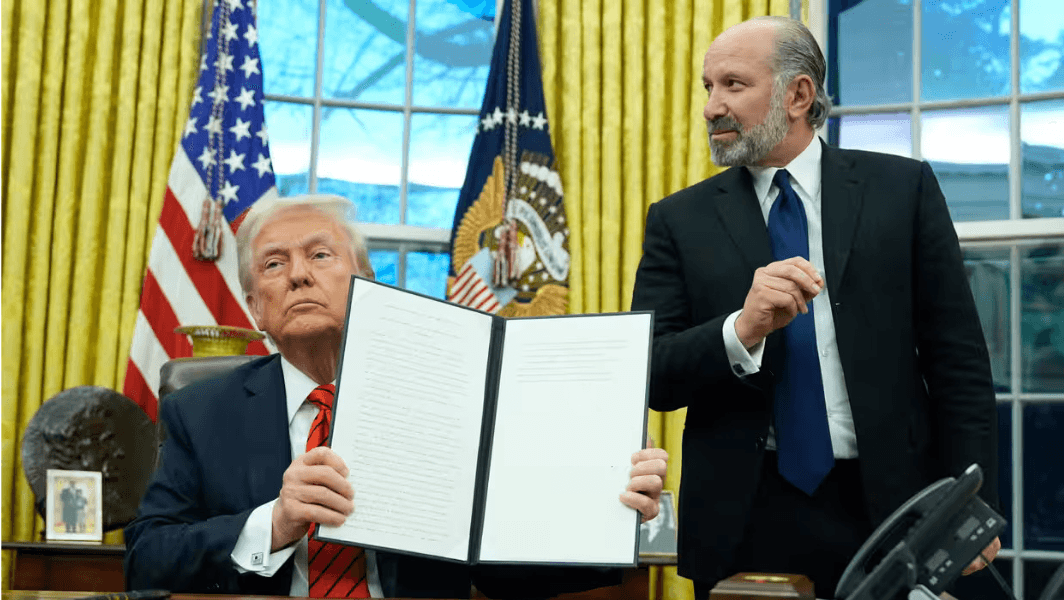
Federal Judge Rules White House Violated Court Order on Funding Freeze
Trump Administration Faces Legal Challenge Over Government Budget Cuts
White House Defies Court Injunction on Funding Freeze
A U.S. federal judge has ruled that the Trump administration violated a court order by refusing to reverse a freeze on billions of dollars in government funds, intensifying legal battles over the White House’s broad cost-cutting initiatives.
The ruling, issued by U.S. District Judge John McConnell Jr, comes in response to a lawsuit filed by 23 Democratic state attorneys general, who challenged the administration’s sweeping budgetary restrictions. Despite a preliminary injunction issued by the court, the White House continued to withhold funds, prompting the latest judicial rebuke.
Background of the Funding Freeze
On January 28, President Donald Trump signed an executive order freezing hundreds of billions in federal funds, citing efforts to identify and eliminate waste, fraud, and misuse within government programs. However, the move lacked transparency, as officials did not clarify which programs were impacted, leading to widespread concern among millions of Americans dependent on federal assistance, including:
-
Healthcare programs (Medicare, Medicaid)
-
Pension and veterans’ benefits
-
Food assistance programs (SNAP, WIC, school meal programs)
The freeze created uncertainty and confusion, with states, agencies, and advocacy groups seeking clarity on which essential services would be affected.
Legal Challenge and Court Injunction
The Democratic attorneys general coalition swiftly filed a lawsuit to block the funding freeze, arguing that the executive order:
-
Violated congressional authority by overriding pre-approved budget allocations.
-
Unconstitutionally disrupted essential services without due legislative process.
-
Caused immediate and irreparable harm to millions of beneficiaries.
Judge McConnell responded by granting a preliminary injunction, temporarily blocking the order while the lawsuit proceeded. However, the White House continued its efforts to withhold funds, leading to the latest ruling that the administration was in direct violation of the court’s directive.
Judge McConnell’s Findings on White House Non-Compliance
In his ruling, Judge McConnell criticized the administration’s justification, stating that officials claimed the freeze was aimed at preventing fraud but was instead a broad, categorical restriction with no specific fraud investigations linked to the funding cuts.
The judge further noted that the funding freeze was:
-
"Likely unconstitutional", as it bypassed congressional authority over government spending.
-
"Causing irreparable harm", disrupting vital public services and leaving millions of Americans in financial uncertainty.
Despite the court’s order, the White House has not yet reinstated the frozen funds, and no penalties were immediately issued against administration officials.
Trump Administration's Response and Appeal Plans
Following the ruling, the Trump administration filed a motion to appeal, requesting a temporary pause on the court’s injunction while the case is reviewed. Trump’s spokesperson, Karoline Leavitt, reaffirmed the administration’s commitment to its cost-cutting measures, including:
-
A broader funding freeze on government spending
-
Targeted cuts to gender equality programs and diversity initiatives
-
An expanded executive authority over budget allocations
Implications for Presidential Power and Legal Precedents
The case marks the first judicial ruling against the second Trump administration for violating a court order, highlighting the increasing legal battles surrounding the president’s aggressive use of executive actions.
The White House’s budget restrictions are being spearheaded by the Department of Government Efficiency (DOGE), led by Elon Musk, as part of a broader effort to streamline federal spending and reduce bureaucracy.
With Democrats and advocacy groups filing multiple lawsuits against Trump’s executive actions, the case could set a significant legal precedent. If the matter escalates to the Supreme Court, it may lead to a landmark decision on the limits of presidential power over government funding.
What Happens Next?
As the legal battle unfolds, key questions remain:
-
Will the White House comply with the court order and reinstate the frozen funds?
-
How will the appeal process impact ongoing government programs?
-
Could this case lead to a Supreme Court ruling on executive authority?
The next phase of legal proceedings will determine whether the Trump administration can continue its budgetary restrictions or if the courts will reinforce congressional control over government spending. For now, millions of Americans remain uncertain about how these funding cuts could affect their benefits and essential services.
For any enquiries or information, contact info@thelawreporters.com or call us on +971 52 644 3004. Follow The Law Reporters on WhatsApp Channels